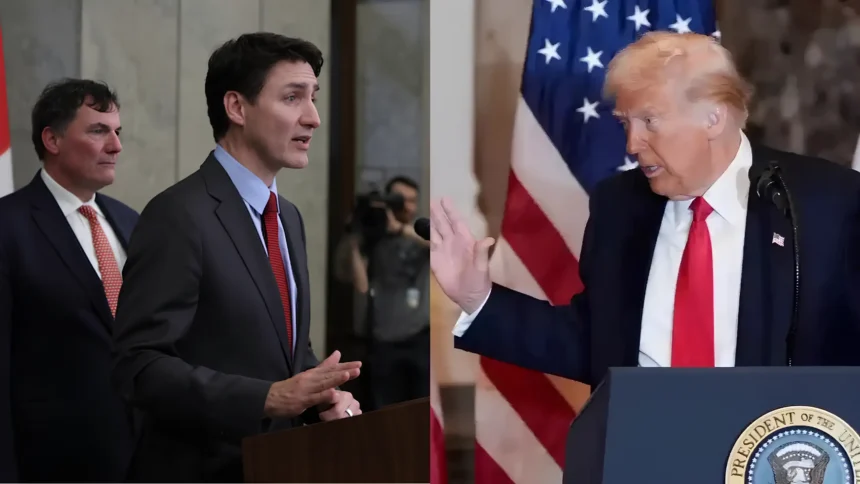Political tensions between Canada and the United States have reached new heights, fueled by controversial remarks from former U.S. President Donald Trump.
He has repeatedly floated the idea that Canada would be better off as America’s 51st state.
But is this just bold rhetoric, or is there a real possibility behind his claim?
A simple NBA game in Toronto became the flashpoint for heightened emotions.
As the Clippers faced off against the Raptors, American fans were stunned when the U.S. national anthem was booed by sections of the crowd.
This wasn’t just about basketball—it was a direct reflection of Canada’s growing frustration with its southern neighbor.
Trump’s aggressive trade policies, including threats of tariffs on Canadian goods, have deepened economic anxieties. For many Canadians, this isn’t just about politics; it’s about national dignity.
Why Canada Won’t Become America’s Next State
Despite Trump’s dramatic claims, the idea of Canada joining the U.S. is unrealistic.
The differences between the two countries are not just political but deeply ingrained in their histories, values, and governance.
Canada operates under a constitutional monarchy with a parliamentary democracy, while the U.S. follows a presidential system.
These systems are fundamentally different, making any political integration nearly impossible.
Public opinion is clear—Canadians take immense pride in their sovereignty.
Polls show that nearly 70% of the population favors progressive policies, vastly different from the political landscape in the U.S.
The idea of merging with a nation that has a starkly different ideological direction does not sit well with most Canadians.
Canada’s social fabric differs dramatically from that of the U.S. Universal healthcare, strict gun control, and progressive stances on LGBTQ+ rights and reproductive healthcare set it apart.
For Canadians, these policies are non-negotiable, making the idea of adopting U.S. governance highly unappealing.
As a G8 member with strong global trade ties, Canada’s economy stands on its own. While the U.S. is its largest trading partner, Canada has diversified economic partnerships worldwide.
Becoming a U.S. state would offer little economic benefit and could, in fact, reduce its global standing.
Unlike the U.S., which was born from revolution, Canada evolved from British and French colonial governance.
Its culture and institutions reflect this history, reinforcing a national identity that resists American influence.
Political Fallout in Canada
Trump’s remarks have sent shockwaves through Canada’s political scene. Conservative leader Pierre Poilievre, who has gained significant traction in the polls, now faces a strategic dilemma.
Aligning too closely with Trump could alienate voters, while distancing himself might weaken his political edge.
Meanwhile, Prime Minister Justin Trudeau sees an opportunity. Facing declining approval ratings, he has seized this moment to reaffirm Canada’s sovereignty.
His firm stance against Trump’s rhetoric has resonated with many Canadians who see this as a test of national pride.
Canada will not be the 51st state, but Trump’s statements have reignited debates on national identity, economic security, and political alliances.
As the next election approaches, Canadian leaders will have to prove who can best manage U.S.-Canada relations while preserving Canada’s autonomy.
Trump’s claim makes for a sensational headline, but it holds no real substance. What matters most is how Canadian leaders respond to the pressure, ensuring that their nation’s identity remains intact.
The real challenge isn’t the threat of annexation—it’s navigating the ever-changing relationship with a powerful and unpredictable neighbor.







